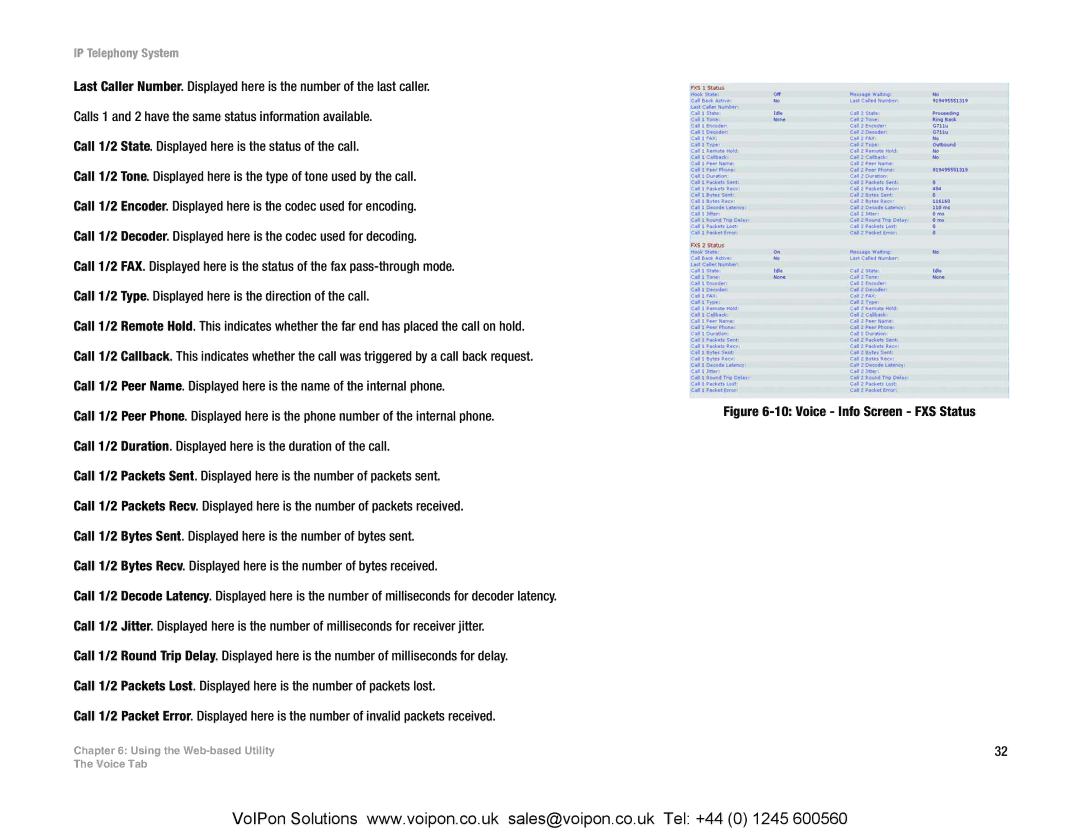
IP Telephony System
Last Caller Number. Displayed here is the number of the last caller.
Calls 1 and 2 have the same status information available.
Call 1/2 State. Displayed here is the status of the call.
Call 1/2 Tone. Displayed here is the type of tone used by the call.
Call 1/2 Encoder. Displayed here is the codec used for encoding.
Call 1/2 Decoder. Displayed here is the codec used for decoding.
Call 1/2 FAX. Displayed here is the status of the fax
Call 1/2 Remote Hold. This indicates whether the far end has placed the call on hold. Call 1/2 Callback. This indicates whether the call was triggered by a call back request. Call 1/2 Peer Name. Displayed here is the name of the internal phone.
Call 1/2 Peer Phone. Displayed here is the phone number of the internal phone. Call 1/2 Duration. Displayed here is the duration of the call.
Call 1/2 Packets Sent. Displayed here is the number of packets sent. Call 1/2 Packets Recv. Displayed here is the number of packets received. Call 1/2 Bytes Sent. Displayed here is the number of bytes sent.
Call 1/2 Bytes Recv. Displayed here is the number of bytes received.
Call 1/2 Decode Latency. Displayed here is the number of milliseconds for decoder latency. Call 1/2 Jitter. Displayed here is the number of milliseconds for receiver jitter.
Call 1/2 Round Trip Delay. Displayed here is the number of milliseconds for delay. Call 1/2 Packets Lost. Displayed here is the number of packets lost.
Call 1/2 Packet Error. Displayed here is the number of invalid packets received.
Chapter 6: Using the
The Voice Tab
Figure 6-10: Voice - Info Screen - FXS Status
32
VoIPon Solutions www.voipon.co.uk sales@voipon.co.uk Tel: +44 (0) 1245 600560
